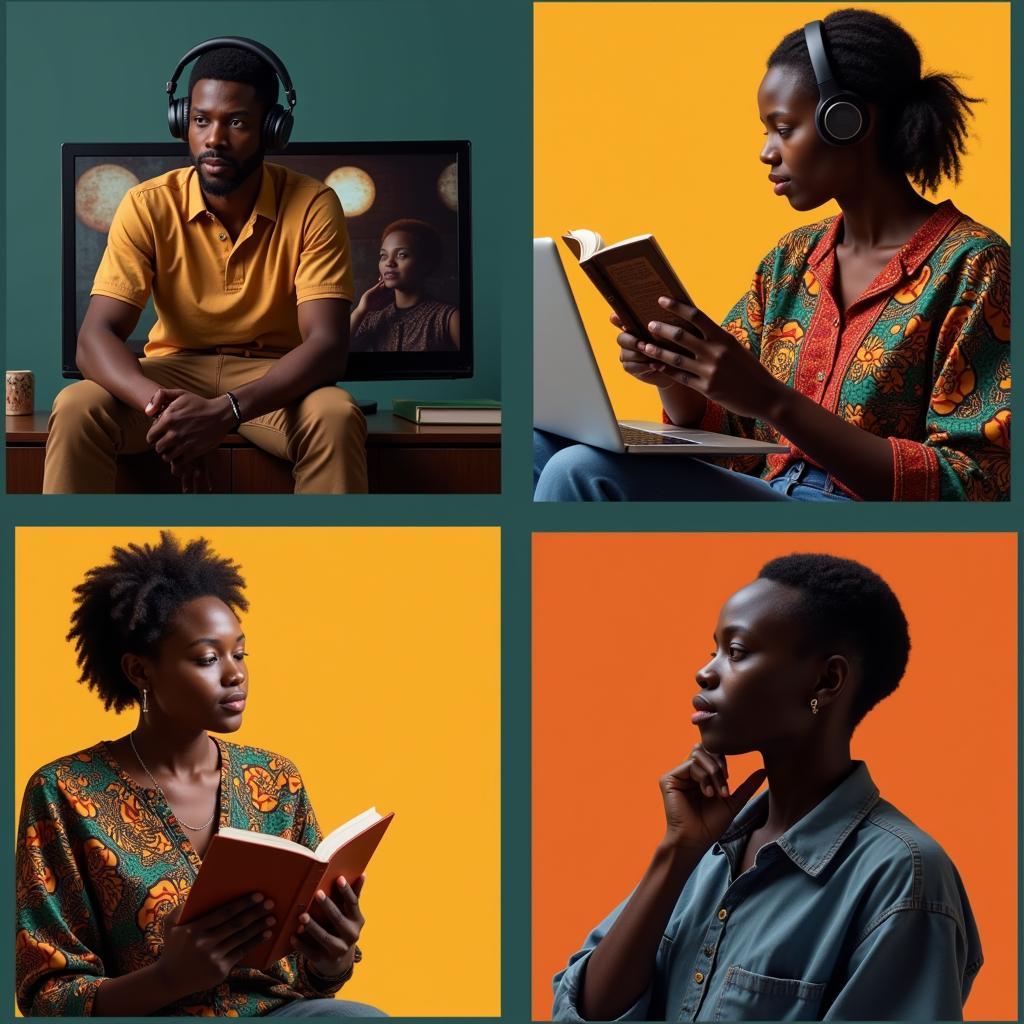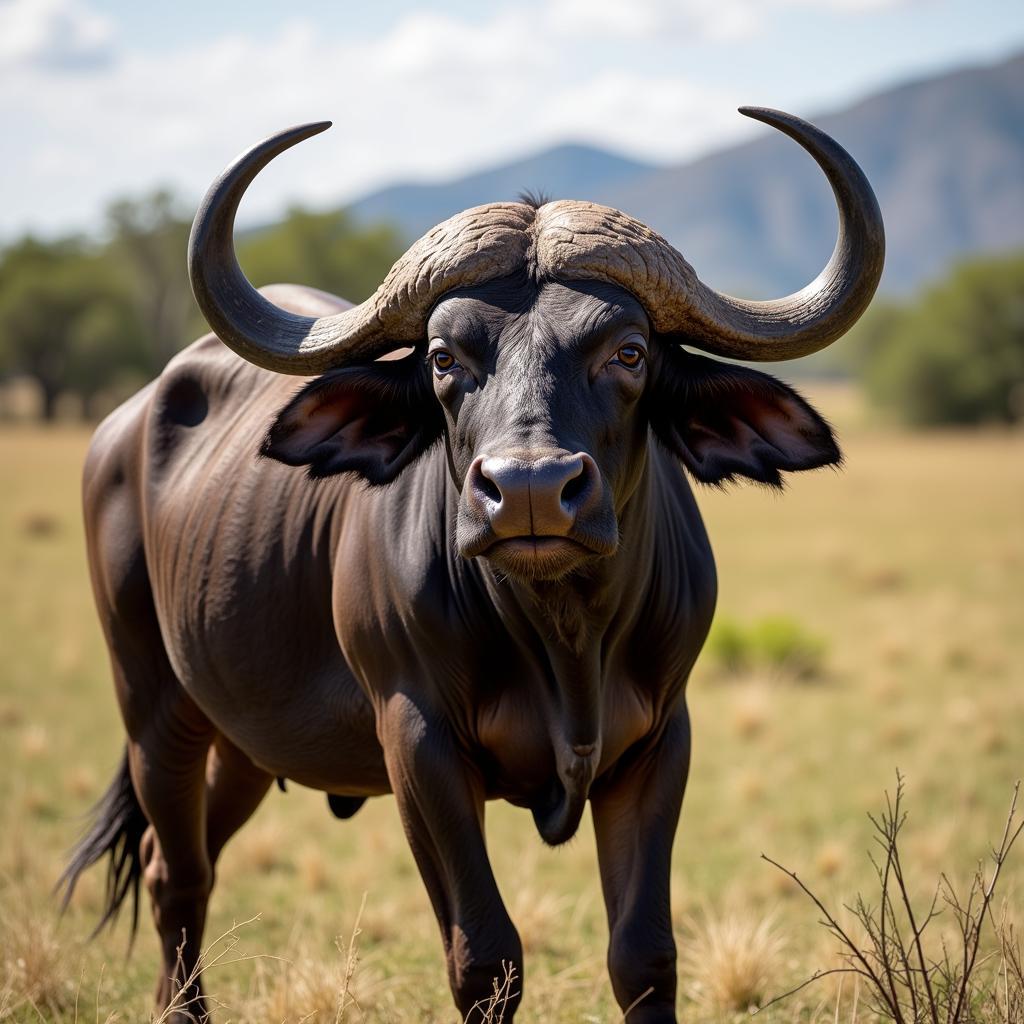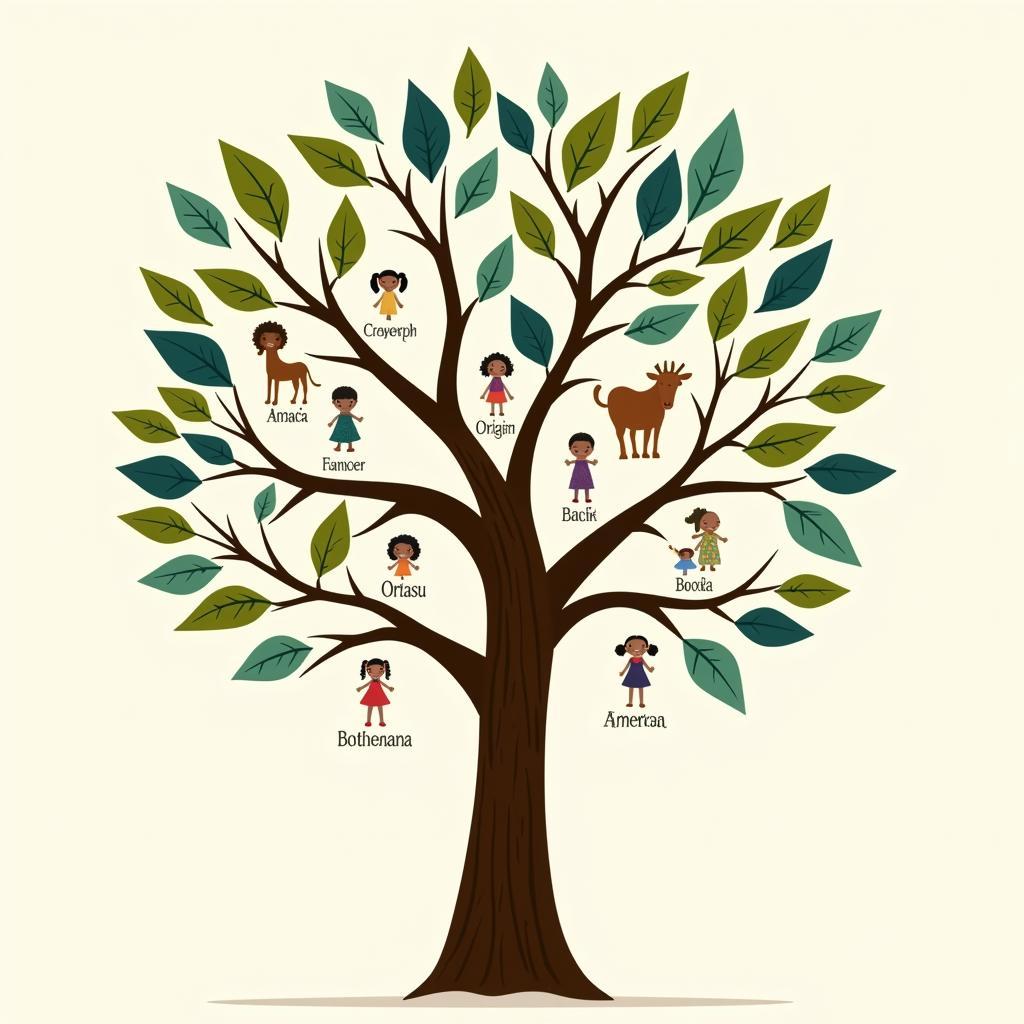Exploring Common African French Words
African French Words, a vibrant tapestry woven from French and various African languages, offer a fascinating glimpse into the continent’s rich linguistic landscape. These words, born from the intersection of cultures, reflect the enduring legacy of French colonialism while simultaneously showcasing the resilience and creativity of African languages. Learning about these words unlocks a deeper understanding of African culture and history.
After colonization by France, many African countries adopted French as their official language. This integration inevitably led to a fusion of languages, resulting in unique variations of French spoken across the continent. These variations are not merely accented versions of standard French, but distinct dialects rich with borrowed words and phrases from local African languages. Understanding these “African French words” is key to appreciating the nuances of communication and culture across Francophone Africa. For a better understanding of the literary influences, see the Summary of the Language of African Literature.
The Influence of African Languages on French
Borrowed Words and Their Meanings
Many African French words have been directly borrowed from indigenous languages to describe concepts or objects unique to the African context. For example, the word “nganda,” originating from Lingala, refers to a small, informal bar or restaurant commonly found in Central Africa. Similarly, “djembe,” a word of Mandinka origin, denotes a type of West African drum. These borrowed words add depth and local flavor to the French spoken in different regions.
Variations in Pronunciation and Grammar
The influence of African languages also extends to pronunciation and grammar. In some regions, the tonal inflections of local languages influence the way French is spoken. Grammatical structures can also be subtly altered, reflecting the underlying syntax of African languages. These variations can sometimes make it challenging for speakers of standard French to understand African French dialects.
Examples of African French Words Across Regions
- West Africa: “Wax” (pronounced “waks”), derived from English, refers to brightly colored, patterned cotton fabric popular in West and Central Africa. “Palaver” signifies a discussion or meeting, often to resolve a dispute.
- Central Africa: “Sawa” is a common greeting meaning “hello” in Cameroon. “Maboko” (hands) is often used colloquially.
- North Africa: “Shisha” (water pipe) is commonly used in North Africa, reflecting Arabic influence.
Dr. Aminata Sow, a renowned linguist specializing in African languages, explains, “The beauty of African French lies in its dynamism. It’s a living language, constantly evolving through its interaction with local cultures.”
Why Learn African French Words?
Understanding African French words enhances communication with Francophone Africans, showing respect for their linguistic heritage. It opens doors to deeper cultural understanding, allowing you to appreciate the nuances of African societies.
Tips for Learning African French Words
- Immerse yourself: Listen to African music, watch African films, and engage with African literature.
- Connect with native speakers: Converse with people who speak African French dialects.
- Utilize online resources: Explore dictionaries and language learning platforms specializing in African French.
- Travel to Francophone Africa: Experience the language firsthand. To find some inspiration for African action movies, see the African Action Movies List.
 Various resources for learning African French.
Various resources for learning African French.
Professor Kofi Busia, an expert in African Studies, notes, “Learning African French words is not just about vocabulary acquisition; it’s about connecting with the heart and soul of Africa.”
Conclusion
African French words represent a captivating blend of languages, showcasing the cultural richness of the continent. By embracing these linguistic nuances, we gain a deeper appreciation for the diverse tapestry of African cultures. Learning African French words unlocks a world of understanding, fostering cross-cultural connections and celebrating the beauty of linguistic diversity. Delve into the fascinating world of African French, and discover the vibrant stories it tells. Are you interested in voice-over translation? Check out African French Voice-over Translation. You might also be interested in African King Quotes for further insights.
FAQ
- What is the difference between standard French and African French? African French encompasses various dialects influenced by local African languages, differing in vocabulary, pronunciation, and sometimes grammar.
- Where can I learn more about African French words? Online resources, language learning platforms, and interactions with native speakers are great ways to learn.
- Why is it important to learn African French words? It promotes better communication, cultural understanding, and appreciation for linguistic diversity.
- How has colonization impacted the development of African French? Colonization introduced French, which then blended with local languages, creating the unique dialects we see today.
- What are some common African French words? Examples include “nganda,” “wax,” “sawa,” and “palaver,” each with specific regional usage.
- How does African French reflect African culture? The borrowed words and unique expressions often reflect cultural practices, beliefs, and traditions specific to different regions.
- What are some challenges in understanding African French? Variations in pronunciation and grammar can sometimes pose challenges for speakers of standard French.
Situations with Common Questions
- Traveling: Knowing basic African French words can enhance your travel experience in Francophone Africa.
- Business: If you conduct business in Africa, understanding local linguistic nuances can be crucial for successful communication.
- Academic Research: Researchers studying African languages and cultures will find knowledge of African French invaluable.
Further Exploration
Check out our articles on African Countries and Capitals in Telugu for more about the continent’s diversity.
Contact Us
For further assistance, contact us at +255768904061, kaka.mag@gmail.com, or visit us in Mbarali DC Mawindi, Kangaga, Tanzania. Our customer service team is available 24/7.



